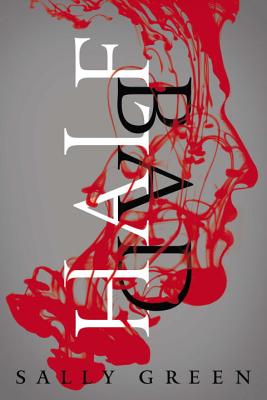The Zookeeper’s Wife by Diane Ackerman is definitely
one of those cases of the truth being even more riveting than fiction. Ackerman writes the story of Antonina Zabinski the wife of a Polish zookeeper during World War II. The Zabinskis spent the war years hiding Jews in their villa and helping the underground in Warsaw. The book is often devastating and the sheer absurdity of the war and the actions of the Nazis are laid bare, but what triumphs over all of that is the survivor spirit of the Zabinskis and the Poles described throughout the book. Ackerman writes of interviews given by Jan Zabinski wherein he expresses that he and his wife were not heroes. They merely "did it because it was the right thing to do." Jan said "I only did my duty." To know both such courage and conviction...I can only imagine.
I was so looking forward to Eleanor Brown's The Weird Sisters. I love books about readers, and a book about three sisters raised by a Shakespearian scholar seemed right in my wheelhouse. Alas, it was not meant to be. I grew weary of this book because the sisters were so frustrating. Each of them is unhappy in a life of their own making and while the book is about them finding their way back to each other and to happiness I just sort of lost patience with them. However, the first person plural narration was a stoke of genius on Brown's part and truly gets to the root of what siblings are.
My favorite book on the list so far must be Where'd You Go, Bernadette by Maria Semple. I did not really expect too much from this book; I don't typically go in for comic novels. But Semple has written this truly funny work of satire that just blew me away. I remember the hype machine working really hard for this book when it was initially released and I am so sorry I ignored it for so long. Not only is this book wildly entertaining, but Maria Semple has an understanding of depression and failed promise that very few people do. I highly recommend this book!
 Terry McMillan's Waiting to Exhale is said to be a book that defined a generation, so I was excited to read it and get a glimpse into a life that is different from my own. This book is unflinchingly honest; for all of the internet ink that goes into dissecting Lena Dunham's HBO series Girls here is McMillan's Waiting to Exhale, written 22 years ago and just as uncompromising and often unlikeable as this so-called trailblazing show. The biggest thing I took away from this novel was the reality McMillan described - these are four fully formed women. They are weak, they are strong, they are endlessly frustrating, they are lovable, but mostly they are real. The fact that I wanted to punch both Robin and Bernadine in the face is a testament to just how invested I was in their lives.
Terry McMillan's Waiting to Exhale is said to be a book that defined a generation, so I was excited to read it and get a glimpse into a life that is different from my own. This book is unflinchingly honest; for all of the internet ink that goes into dissecting Lena Dunham's HBO series Girls here is McMillan's Waiting to Exhale, written 22 years ago and just as uncompromising and often unlikeable as this so-called trailblazing show. The biggest thing I took away from this novel was the reality McMillan described - these are four fully formed women. They are weak, they are strong, they are endlessly frustrating, they are lovable, but mostly they are real. The fact that I wanted to punch both Robin and Bernadine in the face is a testament to just how invested I was in their lives.
I have somehow made it to my advanced age having never read a mystery by Agatha Christie. So, thank you World Book Night for filling yet another glaring omission in my reading life. After the Funeral is the 29th Hercule Poirot mystery and it's a great whodunnit - each time I felt like I had decided which of the characters was the murderer Christie and her master detective spun my ideas on their head and had me pointing the finger at another possible perp. In the end, I was surprised and excited to hear Poirot explain just how he solved the case. The classist ideology and xenophobia were a bit hard to swallow at times, but such is as it is in classic novels.












